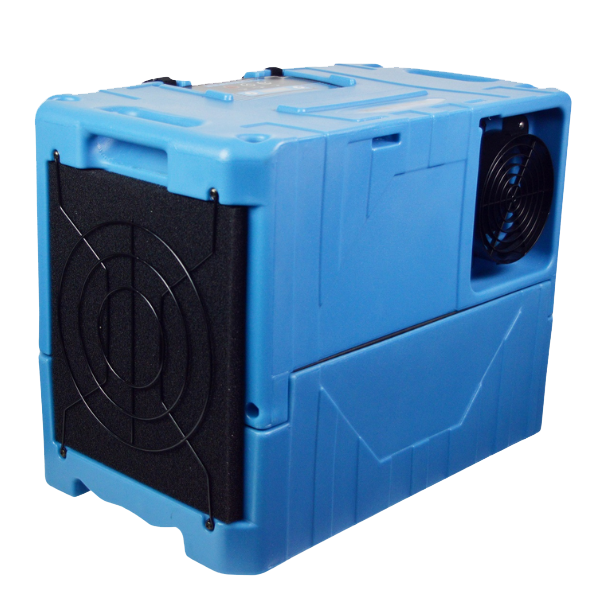
The Essential Role Of Dehumidifiers In HVAC Companies: Top 10 Benefits, Situations, Types, And FAQs
The Essential Role of Dehumidifiers in HVAC Companies: Top 10 Benefits, Situations, Types, and FAQs
By: Brothers Equipment And Supply
In the realm of Heating, Ventilation, and Air Conditioning (HVAC) services, maintaining optimal humidity levels is crucial for ensuring indoor comfort, preserving equipment longevity, and safeguarding indoor air quality.
Dehumidifiers play a pivotal role in achieving these objectives, offering a myriad of benefits to HVAC companies.
In this guide, we delve into the top 10 reasons why HVAC companies need dehumidifiers, explore common situations where dehumidifiers are indispensable, discuss various types of dehumidifiers utilized in HVAC applications, and address the top 10 frequently asked questions about HVAC companies and their use of dehumidifiers.
Let’s get right into it.
Top Benefits Of Dehumidifiers For HVAC Companies
Enhanced Comfort: Dehumidifiers help HVAC companies maintain optimal humidity levels, creating a more comfortable indoor environment for occupants by preventing that sticky, clammy feeling associated with high humidity.
Improved Indoor Air Quality: By reducing excess moisture, dehumidifiers inhibit the growth of mold, mildew, and dust mites, which are common allergens and pollutants. This leads to cleaner and healthier indoor air, essential for occupants’ well-being.
Protection of HVAC Equipment: Excessive moisture can lead to corrosion and degradation of HVAC components such as coils, ducts, and motors. Dehumidifiers mitigate these risks, prolonging the lifespan of equipment and reducing maintenance costs for HVAC companies.
Energy Efficiency: High humidity levels force HVAC systems to work harder to maintain comfortable temperatures, resulting in increased energy consumption and higher utility bills. Dehumidifiers alleviate this strain, allowing HVAC systems to operate more efficiently and cost-effectively.
Prevention of Water Damage: In humid climates or during periods of heavy rain, buildings are prone to moisture infiltration and water damage. Dehumidifiers help HVAC companies mitigate these risks by removing excess moisture from the air, preventing costly structural damage.
Preservation of Building Materials: High humidity can cause warping, buckling, and deterioration of building materials such as wood, drywall, and insulation. Dehumidifiers protect these materials, ensuring the integrity and longevity of the building’s structure.

Control of Odours: Damp environments are breeding grounds for unpleasant odors caused by mold, mildew, and bacterial growth. Dehumidifiers eliminate excess moisture, thereby reducing musty odors and improving overall indoor air freshness.
Humidity Control in Specialized Environments: HVAC companies often encounter specialized environments such as server rooms, laboratories, and clean rooms that require precise humidity control. Dehumidifiers offer the flexibility to maintain ideal humidity levels in these critical spaces.
Comfortable Work Environments for Technicians: HVAC technicians working in high-humidity environments can face discomfort and reduced productivity. Dehumidifiers create more comfortable working conditions, enhancing the efficiency and morale of HVAC company personnel.
Compliance with Building Codes and Regulations: Many building codes and regulations mandate specific humidity levels in certain commercial and residential settings. Dehumidifiers enable HVAC companies to meet these requirements and ensure compliance with industry standards.
Top Types Of Dehumidifiers Used By HVAC Companies
Refrigerant Dehumidifiers: These are the most common type of dehumidifiers, utilizing a refrigeration cycle to condense moisture from the air.
Desiccant Dehumidifiers: Ideal for low-temperature environments, desiccant dehumidifiers use a desiccant material to absorb moisture from the air.
Whole-House Dehumidifiers: Integrated into HVAC systems, these units provide comprehensive dehumidification for entire homes or buildings.
Portable Dehumidifiers: Compact and versatile, portable dehumidifiers are suitable for spot dehumidification in specific rooms or areas.
Commercial Dehumidifiers: Designed for heavy-duty applications, commercial dehumidifiers offer high-capacity moisture removal for large-scale environments.
Industrial Dehumidifiers: Engineered for extreme conditions, industrial dehumidifiers are capable of handling moisture control in challenging industrial settings.
Mini-Split Dehumidifiers: These units are installed directly in individual rooms or zones, providing targeted dehumidification without the need for ductwork.
Low Grain Refrigerant (LGR) Dehumidifiers: LGR dehumidifiers are highly efficient at removing moisture from the air, making them suitable for water damage restoration and drying applications.

Heat Pump Dehumidifiers: Utilizing heat pump technology, these units extract moisture from the air while simultaneously heating or cooling the space.
Energy-Efficient Dehumidifiers: Featuring advanced energy-saving features, energy-efficient dehumidifiers help HVAC companies reduce operating costs and minimize environmental impact.
FAQs
What is the role of a dehumidifier in an HVAC system?
- Dehumidifiers remove excess moisture from the air, improving indoor comfort, air quality, and equipment performance.
How do I know if my HVAC system needs a dehumidifier?
- Signs of high humidity, such as condensation, musty odors, and mold growth, indicate the need for a dehumidifier.
Are there different types of dehumidifiers available for HVAC applications?
- Yes, various types of dehumidifiers, including refrigerant, desiccant, whole-house, and portable models, cater to different HVAC requirements.
How do I determine the right size of dehumidifier for my HVAC system?
- Factors such as the size of the space, humidity levels, and air circulation play a role in selecting the appropriate dehumidifier capacity.
What maintenance tasks are required for dehumidifiers in HVAC systems?
- Regular cleaning of filters, coils, and drainage systems, as well as periodic inspections, are essential for optimal dehumidifier performance.
Can a dehumidifier be integrated into an existing HVAC system?
- Yes, dehumidifiers can be installed as standalone units or integrated into HVAC systems to provide centralized humidity control.
Are there specialized dehumidifiers for specific HVAC applications?
- Yes, there are dehumidifiers designed for specialized environments such as server rooms, laboratories, and clean rooms.
How do dehumidifiers contribute to indoor air quality improvement?
- By reducing moisture levels, dehumidifiers inhibit mold, mildew, and allergen growth, leading to cleaner and healthier indoor air.
What are the benefits of outsourcing dehumidification services to HVAC companies?
- Outsourcing dehumidification services to HVAC companies ensures expertise, reliability, and compliance with industry standards, allowing businesses to focus on their core operations.
Conclusion
Dehumidifiers are indispensable tools for HVAC companies, offering a multitude of benefits across various industries and applications.
From enhancing indoor comfort and air quality to protecting equipment and structures, dehumidifiers play a vital role in creating healthy, efficient, and sustainable indoor environments.
By understanding the benefits, situations, types, and FAQs surrounding dehumidifiers, HVAC companies can effectively leverage these solutions to meet the diverse needs of their clients and ensure optimal performance of their systems.
If you have any questions about our article, “The Essential Role of Dehumidifiers in HVAC Companies: Top 10 Benefits, Situations, Types, and FAQs” or need dehumidifiers for your HVAC company contact sales@brothers-equipment.com or chat with us on LiveChat and social media.
